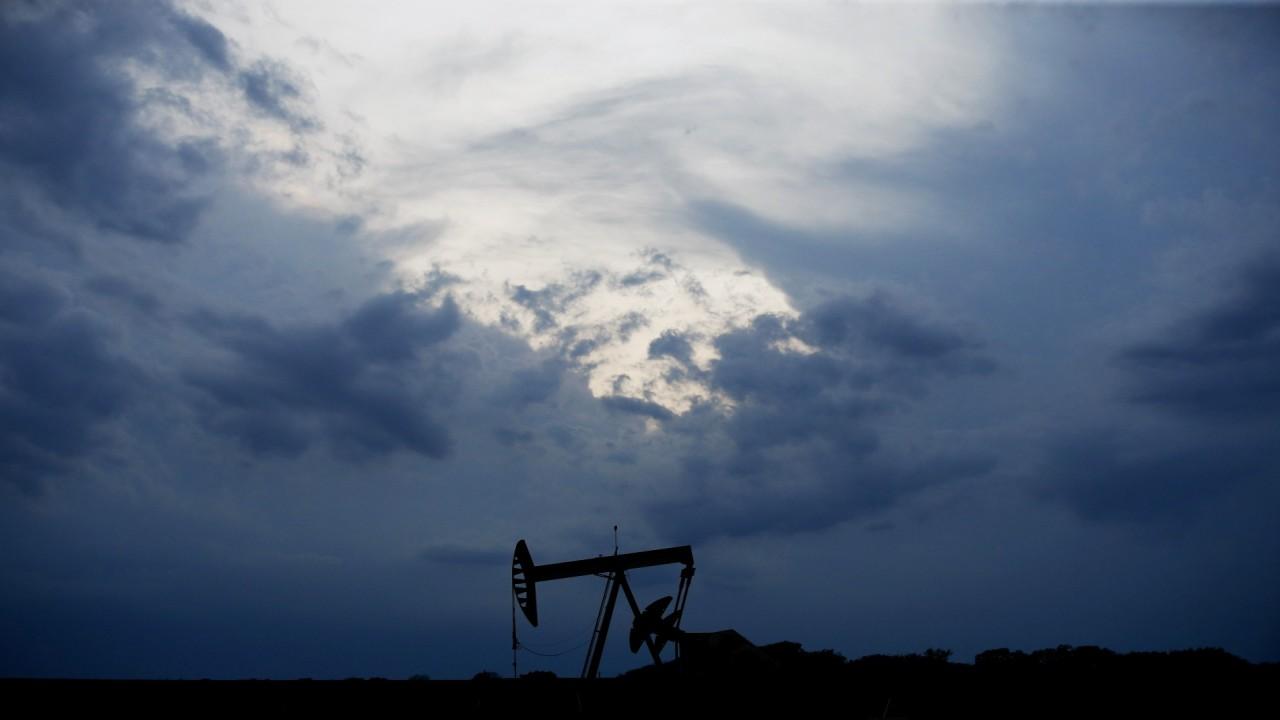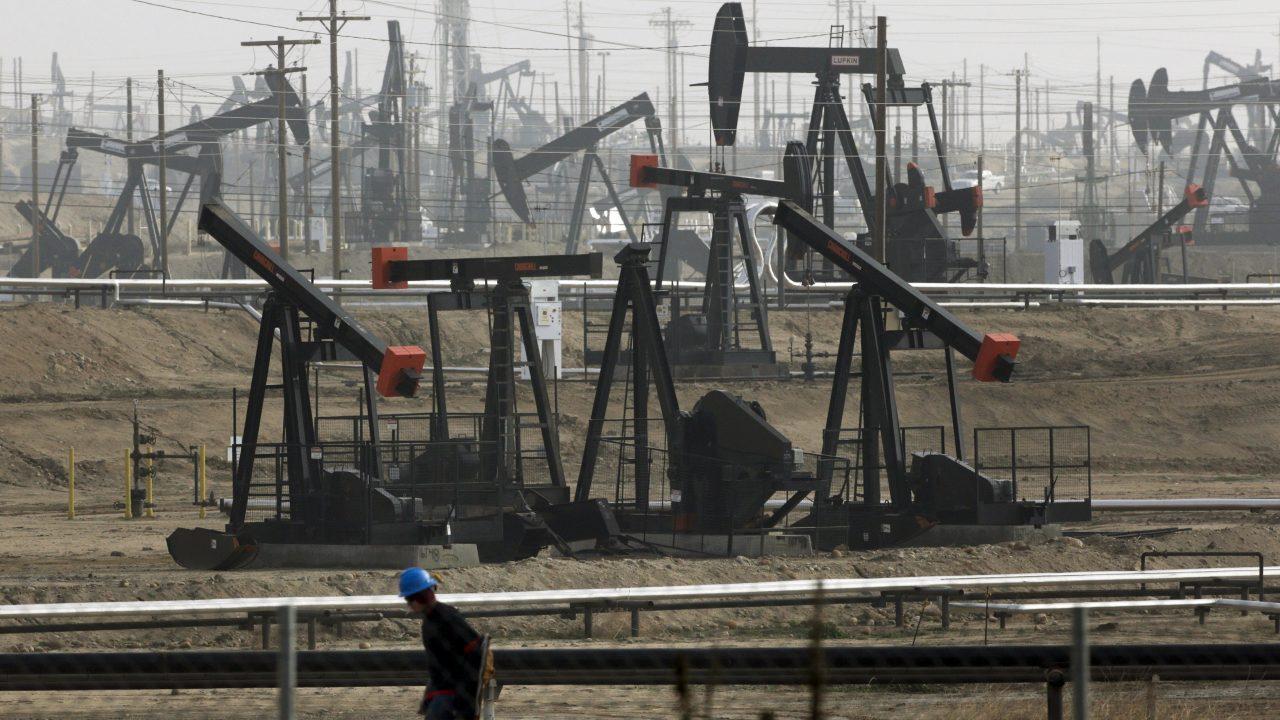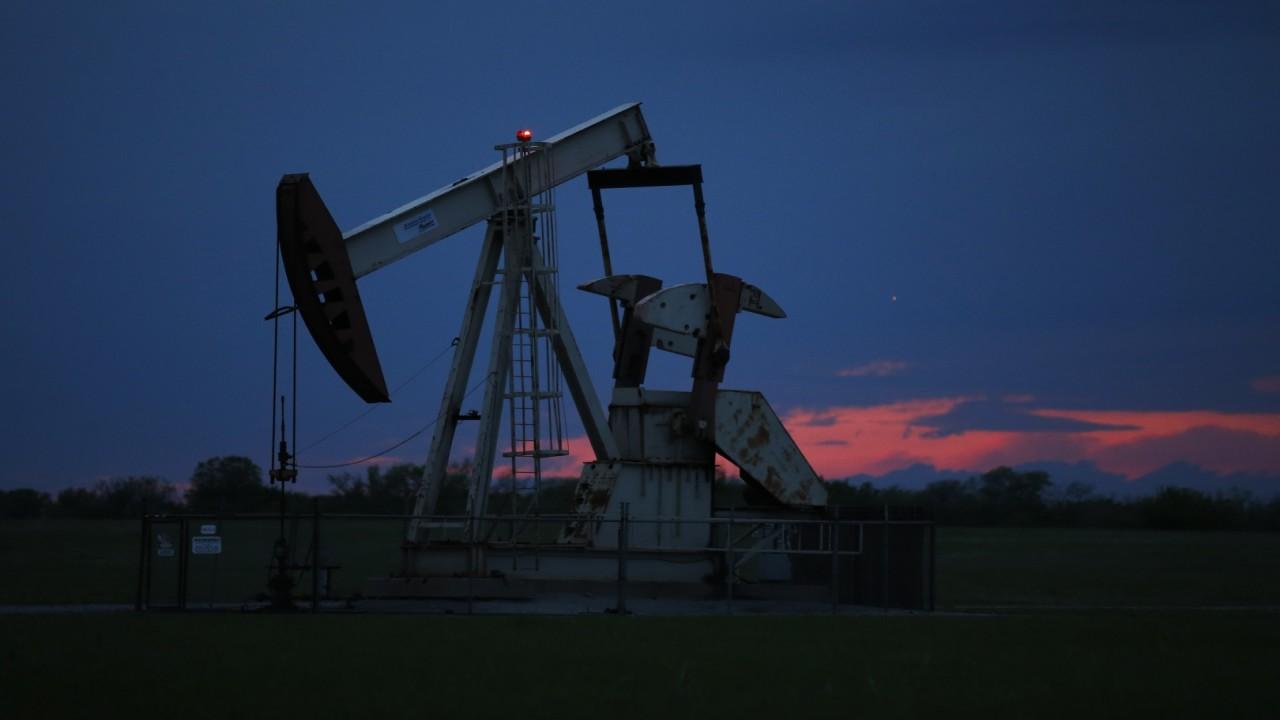How Trump can help our oil industry right now and skip Pelosi's stall tactics: Steve Forbes
We need to do whatever it takes to save this supremely important economic sector
Get all the latest news on coronavirus and more delivered daily to your inbox. Sign up here.
Here is something President Donald Trump can do swiftly to help our battered oil industry: give it a temporary reprieve on heavy royalty payments to the federal government. The moratorium would be lifted when markets return to normal. The nice thing here is that the president does not need Nancy Pelosi’s permission to act. She can eat her ice cream undisturbed. First a little background. While COVID-19 was beginning its deadly sweep across our country, Russia and Saudi Arabia used this catastrophe as an opportunity to further spark a price war on a key commodity – oil – flooding the global market and pushing prices to dangerously low levels.
VARNEY: OIL CRASH A ‘SHOCKING’ EXAMPLE OF CORONAVIRUS SEVERITY
Make no mistake, this was an attack on America’s energy dominance and a vital element of our entire economy.
In short, they saw what the United States and the Trump administration have built as an existential threat to their monopolies by way of healthy competition where little existed before.
Thankfully, President Trump recognized the threat posed by these foreign actors and recently took action, and won, securing an agreement on our terms. As a result, the Russians and Saudis agreed to reduce their daily oil output by nearly 10 million barrels.
In the process, this victory reasserted global free market dynamics over the market-distorting geopolitical self-interests of Russia and Saudi Arabia and helps to restore a fairer playing field for U.S. companies and workers. But even with the Trump-brokered deal, oil prices have slumped to historic lows due to decreased demand and storage issues, trading for the first time ever in negative territory.
OIL CRASHES 45% TO LOWEST LEVEL SINCE 1986
On April 20, US West Texas Intermediate crude closed at -$37 a barrel. The impact of those price drops on small, independent oil producers – who develop 91 percent of US wells and produce 83 percent of American oil and 90 percent of American natural gas – could be devastating if they are not given some relief.
President Trump has already pledged to make money available to the oil industry from the $2.2 trillion pandemic rescue aid package, but we need to do whatever it takes to save this supremely important economic sector. Even though the president has been reluctant to support a temporary royalty suspension up until now, these new developments beg for him to take a second look. The shale revolution ensured that the USA would no longer have to have its collective hand out, relying on the generosity of foreign nations to provide us with a crucial resource. This revolution has created new jobs, new industries, and new businesses.
During President Trump’s tenure, American companies transformed the market through innovation and competition. Today, we can produce oil faster and more efficiently than our foreign rivals. More importantly, the wealth this boom created at home has stayed at home, invested in our streets and cities, not somewhere abroad that most Americans will never see or benefit from.
HALLIBURTON BOOKS $1.1B CHARGE AS OIL CRASH WHACKS SPENDING Yet, the human threat and economic impact of the foreign-borne COVID-19 remains with us.
When the call for resources came at the onset of this pandemic, energy companies resoundingly answered it. More than innovators, more than job creators, they are key allies for our doctors and nurses, producing vital inputs for critical tools in the fight against coronavirus, from gloves to surgical masks and hand sanitizer. And it goes without saying that first responders, ambulances, and truckers would not be on the road – and helicopters and cargo planes in the air – without fuel production, refining, and transport.
When others have been able to work from home, thousands of energy workers have reported to their jobs, keeping the supply chain moving so Americans had access to and transport of critical and essential products and services.
President Trump is well known for taking swift action to protect our homeland. When this virus first spawned in China, he rapidly shuttered flights.
When Americans needed financial support, his administration quickly negotiated several stimulus measures with Congress to ensure aid moved at unprecedented speed. And President Trump can now act again in our nation’s best interest by helping to preserve thousands of jobs in the U.S. energy sector – and do so without House Speaker Nancy Pelosi and Senate Minority Leader Chuck Schumer’s Green New Deal fantasy playland distractions. Energy producers big and small pay production royalty fees, essentially taxes, to federal and state governments of between 12.5 percent to nearly 20 percent for operating on public lands.
CLICK HERE TO GET FOX BUSINESS ON THE GO
Some of those fees will soon come due at the same time these capital-intensive companies are struggling to maintain their operations and skilled worker payrolls. Many of the major energy companies will surely survive through a sustained economic downturn, but their smaller compatriots that make up much of the backbone of oil production in the U.S. will not likely be so lucky.
To help mitigate this the president could order the Department of the Interior (DOI) to pause or waive some of these royalty collections in the short-term to provide much-needed liquidity to keep their operations and workforces afloat. And the Interior Secretary could do so with the stroke of a pen. The Texas General Land Office School Land Board, which manages mineral leasing of state Permanent School Fund lands, has already taken action, recently voting unanimously to approve royalty relief. They have waived penalties and interest on late royalty payments and granted other extensions through the end of the year. The DOI Bureau of Land Management (BLM) should quickly follow their lead.
If nothing happens, more wells will go idle and more people will go without work.
Moreover, this will have a ripple effect across stakeholder industries – which employ untold numbers of American workers – that help to service these operations, refine their products, market and sell them, and distribute them across the nation and the world.
Oil production operations both onshore and offshore are massive undertakings. They simply cannot be turned back on after rigs are pulled and employees are laid off.
Ultimately, what we are seeing would result in American consumers, families and businesses soon finding themselves under the thumb of foreign energy suppliers once again. President Trump has never backed away from a fight. And we need him again in this one.Steve Forbes is Chairman and Editor-In-Chief of Forbes Media.
























